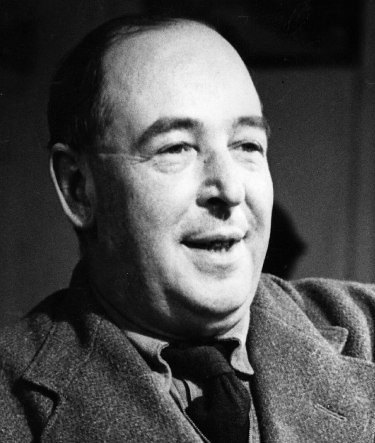
Volume XIII, Issue XXIV
"Behold the Man!"
-- John 19:5b
Many years ago I celebrated Thanksgiving with our church family. There I met the first Nepali I have ever had the chance to speak with. His name was Prem Pradhan. This Gurkha warrior had served in Britain's Royal Air Force before returning to his native land. An accident had permanently injured him and he walked with a limp; but walk he did. In a land where foot travel is necessary to reach most of the villages, Prem walked. He had learned something amazing and he felt compelled to travel to the ends of this mountain kingdom to share it!
Walking all day to reach some remote village, Prem would seek out the men and elders of the place and say: "I have heard a NEW THING! I have heard about a man who died and came to life again!" Who would NOT be intrigued? Pradhan would go on to share his fresh vision of the risen Jesus... and many put their faith in Christ through the fresh telling of the old old story. Not everyone was thrilled to hear this 'Good News,' however. Prem had run afoul of the country's anti-conversion laws. He was put into prison, where he languished for seven years.
Nepali prisons are notorious. Prem's enemies sent him there knowing that it was a place to die. Like the amazing man Prem spoke of, he too was basically sentenced to death. But here he was, years later, telling me his story. He didn't die. While he was in prison he had a vision of the risen Lord, and was further strengthened in his resolve to tell the story of redemption. When he left prison he became involved in education and took in a lot of orphans. While proselytizers are discouraged in Nepal, educators are revered. Prem became a leader of his town and never stopped telling the amazing story.
The Babe of Bethlehem became a man. We have heard the Christmas story so many times that we fail to appreciate its audacity! Let us listen again to it with fresh hearing: "I have heard a NEW THING! I have heard about a man who died and came to life again!" Let us follow the grown Jesus to that time of his death. We first meet him on a hillside. An unlikely candidate for leader of a world religion, he attracts multitudes nonetheless. He teaches a simple message that "The Kingdom of G-d is at hand," and then withdraws to a lonely place with his disciples.
Children flock to Him. He is often surrounded by them and his disciples want to shoo them away. Jesus rebukes them. The Kingdom of G-d is meant for such as these. I met an Egyptian woman who had visions of this place. She says that in Heaven Jesus is SURROUNDED by children. This Jesus did not seek out the halls of power, but instead sought out the weak and simple people of this world. He was a carpenter. His disciples were fishermen, zealots and a tax collector. He spoke to women (most rabbis would not). He spoke "as one having authority." Indeed, one of the most amazing parts of the story is when Jesus stands before the Roman ruler Pilate, who's reaction to Jesus is worth noting.
The promises of Messiah were well known and many in Judea hoped for the coming of that leader who would free them from the oppression of Rome. There were many who claimed to be Messiah, looking to fire a zealot rebellion, and Rome was especially good at killing people. So when a maligned and fairly ordinary Galilean was brought before Pilate, why should he hesitate? There was the fact that he was not actually inciting any uprising... but something in Jesus caused this tough old Roman to pause. Pilate knew his job, but he also recognized authority and chain of command. This Galilean was not blustering about rebellion, in fact He was holding the details of His true mission close to His heart. Pilate saw more than met the eye about the man from Galilee. There is more searching than sneering in his question: "Are you a king?"
Pilate finds himself drawn into a higher sort of dialogue with this man... even asking Him: "What is Truth?" Already troubled by the man he sees, he is further troubled by his wife's dream of him. Indeed, he wants to "wash his hands" of this matter. The simple execution of a supposed rebel has become something far bigger. Pilate tries to release Jesus but is pressed to release Barrabas, a real insurrectionist, instead. The death and Resurrection of Jesus became the story that eventually captivated the Gurkha from Nepal.
The modern age brought about a dismissal of the unseen. Science and Naturalism pushed for concentration on what can be observed. The spiritual and invisible dimensions of life no longer dominated great thought... except to perhaps be broad brushed as simply unknowable. Had Pilate limited himself to that which was observable he would have quickly executed this ragged Galilean. There would be no need for angst, for though he SPOKE as one with authority, he had no physical evidence of that authority.
C.S. Lewis was a man of the modern age. He dismissed the faith as a young man, embracing the Naturalism of his day. As an enlightened Medieval scholar, he nonetheless dismissed the power of story to convey unseen truths. His friendship with men like J.R. R. Tolkien led him to become: "the most reluctant convert in all of England." Lewis, along with his friend Tolkien, discovered the power of the story to convey unseen truths. Imagination for them became the key to discover and share: "a NEW THING!"
"When the Pupil is Ready, The Master Will Appear"

"Imagination is the organ of understanding." -- C. S. Lewis
If I find in myself desires which nothing in this world can satisfy, the only logical explanation is that I was made for another world.” -- C. S. Lewis
